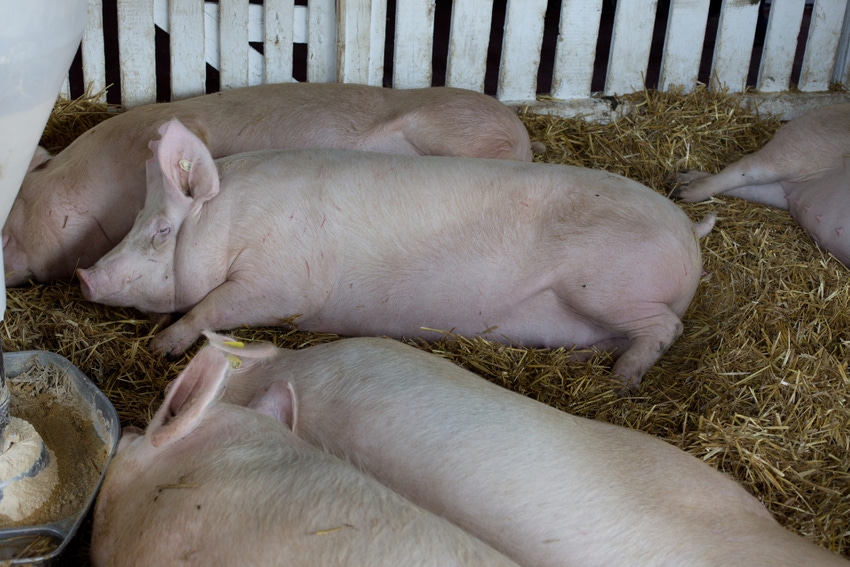Researchers will identify and analyze possible risk factors commonly associated with pelvic organ prolapses in sows.
April 12, 2018

Healthy and productive sows help ensure profitable and efficient herds, in turn helping provide financial stability to producers and the industry in general.
So, when sow mortality rates due to pelvic organ prolapse started to increase throughout the industry with no apparent defined reasons, that was cause for concern. That’s why the Iowa Pork Industry Center (IPIC) at Iowa State University is leading an industry-wide research effort to identify specific factors leading to pelvic organ prolapses that are contributing to the higher mortality rate.
IPIC director Dr. Jason Ross said funding for this project came from National Pork Board, which realized the need for a coordinated approach to the problem. The project involves 10 faculty from Iowa State, extension specialists and a large group of industry partners who bring different thoughts and perspectives to tackling an important issue such as this.
“The long-term objective of the project is to identify causes of pelvic organ prolapse so specific mitigation strategies can be developed and used,” he said. “At this point, the project includes more than 400,000 sows on more than 100 farms across 16 U.S. states. The farms are of varying sizes, ownership, facility types and genetics.”
IPIC is working with large production systems, smaller independent producers, a variety of sow housing designs and numerous genetics with a goal of representing the industry as a whole. Enrolled farms may have high, medium or low reported levels of prolapses, Ross said. This will help researchers identify and analyze possible risk factors that appear to be commonly associated with pelvic organ prolapses.
“A major component of our work is to gather consistent mortality data from all farms to create accurate benchmarks,” he said, after which the data will be shared with participating groups "in a confidential manner on a regular basis.”
IPIC swine program specialist Amanda Chipman leads the data collection and analysis portion of the project.
“My role includes collecting weekly data on mortalities and prolapses from sow farm managers, and I work with veterinarians, nutritionists and others from production systems to gather historical production, health, nutrition and management information,” she said. “We started collecting on-farm data in mid-January and were on 45 farms by the end of March. The opportunity to be on the farms collecting data and meeting the sow farm managers and company representatives has really been a privilege.”
Chipman also works with Iowa State faculty throughout the entire data collection process, deciding what to collect, how to collect it and how to summarize and analyze the findings.
“While the project remains in its relatively early stages, it has been quite successful in underscoring the collaborative nature of pork producers and their commitment to continuous improvement of animal health and well-being,” Ross said. “Also, the networks we’ve established with industry and academic partners are expected to facilitate rapid dissemination of project results as they become available.”
More information and weekly reports are available on the IPIC website.
You May Also Like
.png?width=300&auto=webp&quality=80&disable=upscale)


